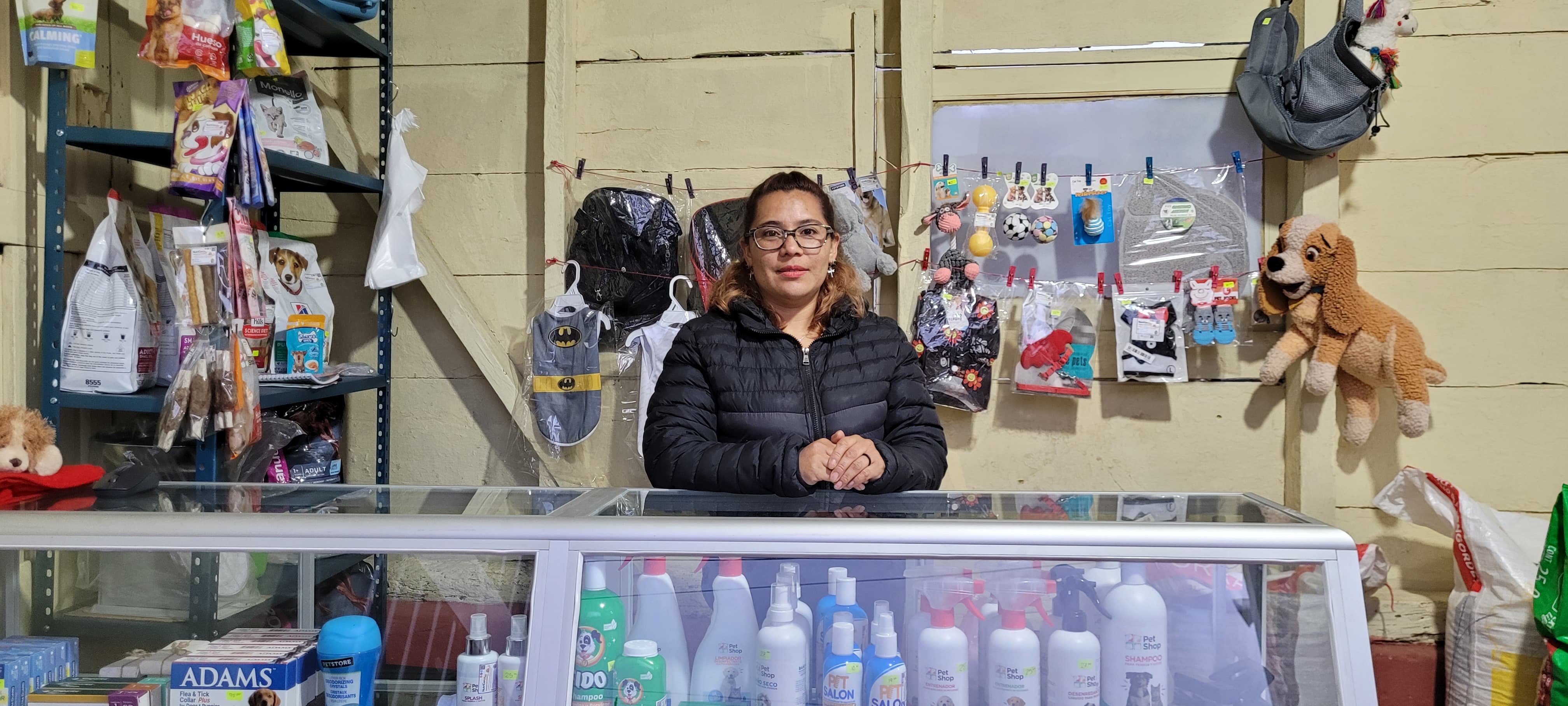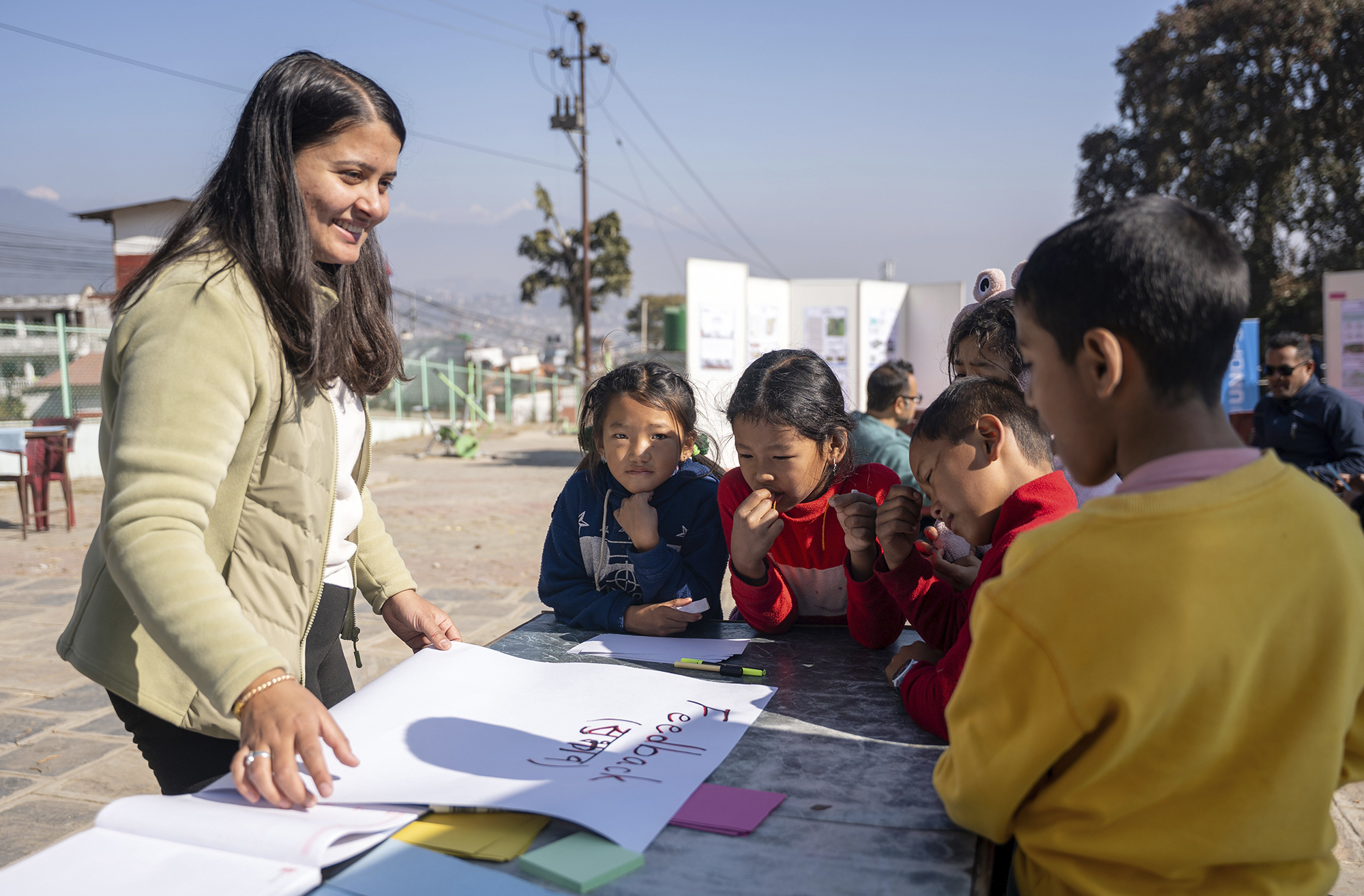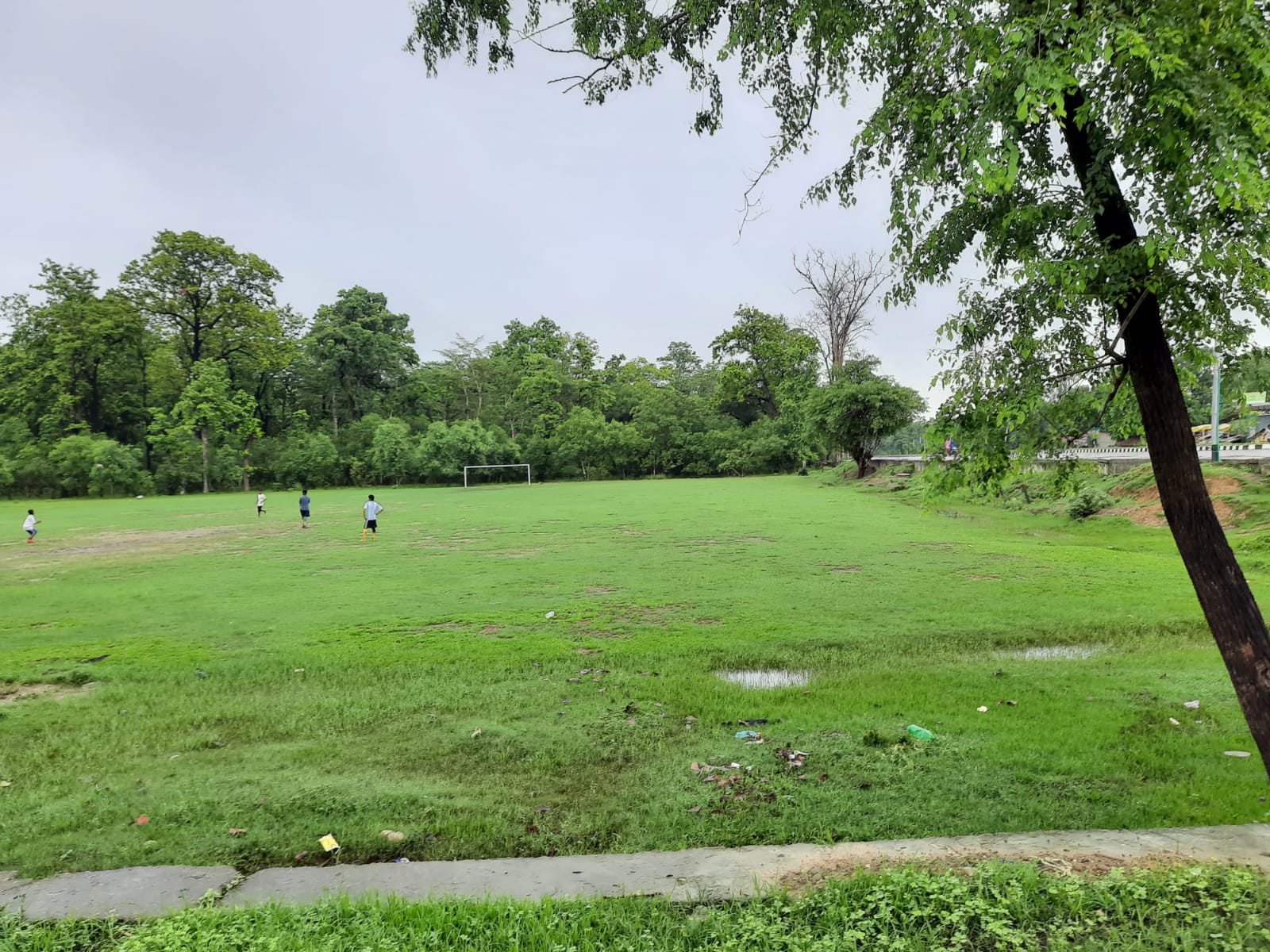[20 September 2012] -- Over the past four decades Brazil has become one of the most urbanised countries in the world, with more than 80 percent of Brazilians living in cities.
Throughout this period of rapid transition, Brazil’s cities and the national government have tested many different policies and approaches to slum upgrading, with varying degrees of success.
These experiences are explored in Slum Upgrading: Lessons Learned from Brazil, a new publication that analyses the different slum upgrading approaches that were undertaken in Brazil, evaluates what worked, what didn’t, and why.
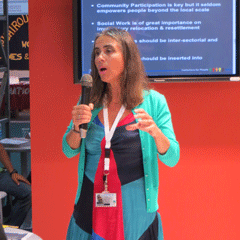
Fernanda Magalhaes, editor of Slum Upgrading: Lessons from Brazil, at the book launch hosted by the Cities Alliance at WUF6. Photo: Susanna Henderson/Cities Alliance
Written mainly for urban development professionals and decision makers involved in policy and programme design, the book disseminates useful lessons learned from urban development and favela urbanisation operations in Brazil financed by the Brazilian Government and the Inter-American Development Bank (IDB), the main source of multilateral financing for slum upgrading in Latin America, over the past ten years at the federal, state and municipal levels.
Slum Upgrading does not provide guidelines for a successful slum upgrading approach; rather, it considers what was important in the decision making process that enabled results to be achieved. It offers a practical analysis of the evolution of the project cycle, enabling a better understanding of the key stages of the design and execution process, its main players, and the impact of observed institutional and political conditions.
The concept of programme integration in slum upgrading features prominently throughout the book. It also highlights the importance of a multi-sector approach that links the physical aspect of upgrading to social and economic dimensions, including health care, education and economic development.
The experience of Brazil, both positive and negative, offers tremendous lessons for African countries that are at the beginning of the urbanisation process. They also provide valuable source of knowledge for the government of Brazil as it moves forward with the massive Growth Acceleration Programme (PAC), a strategic investment initiative that comprises thousands of infrastructure projects, including slum upgrading.
The idea for the publication was developed through collaboration among the IDB, the Cities Alliance, the Brazilian Ministry of Cities, and the Caixa Econômica Federal, which formed a partnership for the purpose of consolidating operational knowledge. The Cities Alliance also hosted the book launch at the sixth World Urban Forum in Naples.
|
The Cities Alliance in Brazil The Cities Alliance has had a presence in Brazil since 2001, working very closely with city, state and national policy makers on social housing and slum upgrading as well as the design and implementation of urban planning and knowledge tools. The partnership has become a fundamental element in the strengthening of national slum upgrading approaches and pro-poor housing policies all over the country. At the city and state level, Cities Alliance partnership activities have showcased good practice models of scaling up planning and urban development through national policies and programmes. Highlights include:
Citywide slum upgrading in São Paulo 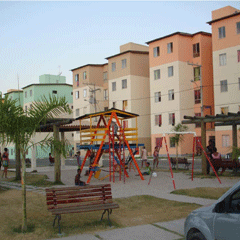
The Cities Alliance has supported Brazil's slum upgrading efforts since 2001. Photo: SEHAB The Cities Alliance has collaborated with the São Paulo Municipal Housing Secretariat (SEHAB) on a citywide slum upgrading programme since 2001. As a result of the partnership, the Municipality of São Paulo established the Bairro Legal (Nice/Legal Neighbourhood) Programme, an initiative providing security of tenure and improved living conditions for slum dwellers. The Municipality also created HABISP, a centralised database with information about the city’s precarious settlements that has become a valuable tool for urban development. Plans are underway to introduce HABISP into metropolitan São Paulo, which has a population of nearly 20 million.
Slum upgrading in Bahia The Cities Alliance and the state government of Bahia supported an integrated upgrading programme in Alagados, one of Brazil’s largest slums in the city of Salvador. The partnership comprised the State of Bahia, the World Bank, the Government of Italy, AVSI (an international development NGO) and more than 70 local community associations. The project used a participatory and integrated approach that made a real difference in the lives of slum dwellers and set the process of scaling up in motion. This approach is being incorporated into national policy and will support the development of social work in housing programmes all around Brazil. It is also being adapted to Mozambique through a partnership between Brazil, Italy and the Cities Alliance with the Municipality of Maputo. This landmark example of south-south cooperation will enable Mozambique to benefit from over ten years of experience with integrated and participatory slum upgrading developed in Brazil with the support of the Italian Government and the Cities Alliance.
Development of a National Housing Plan The Cities Alliance supported the development of Brazil’s first National Housing Plan, which provides goals and targets for meeting the housing needs of a select population in the lowest income brackets and the emerging middle class over a period of 16 years. The National Housing Plan was the first step towards a new subsidies model implemented through the My Home, My Life (Minha Casa, Minha Vida) programme, which aims to build 3.4 million houses by 2014. A benchmark for Brazil’s housing policy, the programme significantly scales up the level of individual subsidies and availability of funding for subsidies and finance. My Home, My Life is part of Brazil’s massive Growth Acceleration Programme (PAC), which includes slum upgrading and housing as a national priority. Cities Alliance is currently supporting the Ministry of Cities in enhancing the national housing policy and scaling up the experience. |

